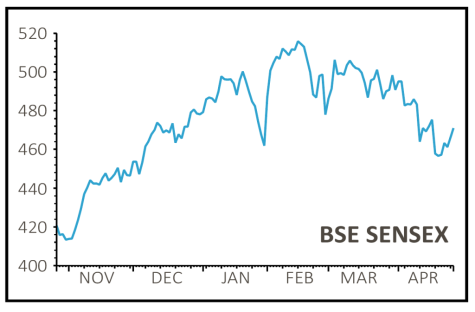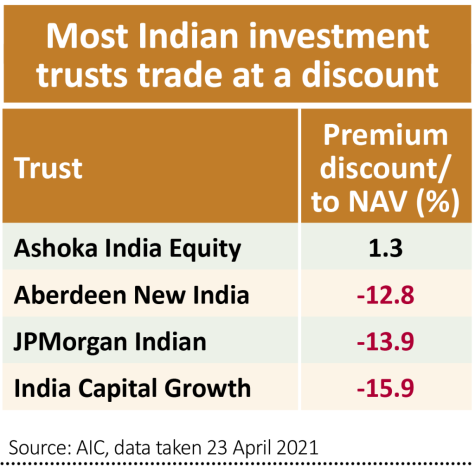A fresh wave of Covid-19 is having a devastating impact on India, with the country’s health system overwhelmed amid the worst second wave seen anywhere in the world during the pandemic. Despite this tragic and apparently worsening situation Indian stocks have recently resumed an upward path after a shaky month or so.
One of India’s major stock market indices is the BSE Sensex which has increased by 5% in value over the five days to 28 April and is up 52% over the past 12 months.

Investors are forward looking and while the country currently faces a dire situation there is optimism about the earnings outlook for Indian companies in 2022.
This optimism has been founded on a strong company reporting season for the first quarter of 2021. While it is understandable that investors are looking beyond the current awful backdrop there is a chance the negative impact on the economy is being underestimated, particularly given the widespread suspicion that the true number of Covid cases and level of mortality is being under-reported.
DOWNSIDE RISKS
Ratings agency Standard & Poor’s has warned of downside risks to the economy and possible business disruption linked to the resurgence of the virus. S&P’s domestic counterpart Brickwork Ratings has already revised down its forecast growth in India’s 2022 GDP from 11% to 9%.
There is also some potential for the fallout from the crisis to affect what has been a fairly stable political backdrop going back to the election of incumbent prime minister Narendra Modi in 2014.
Longer term India does enjoy considerable drivers for economic growth. Chief among them is demographics. According to the CIA’s World Factbook the median age in the country is just 28.7 years. For comparison the equivalent figure for the UK is 40.6 years.
Ageing populations in the West are likely to constrain growth as the working age population shrinks and must support a large elderly cohort. India faces no such problem, and its workforce should grow rapidly.
There are several London-listed investment trusts with an Indian focus and all but one of them trade at significant discounts to net asset value. The exception is Ashoka India Equity (AIE) which is at a modest premium to NAV having outperformed its rival trusts since its launch in July 2018.

‹ Previous2021-05-06Next ›

 magazine
magazine










